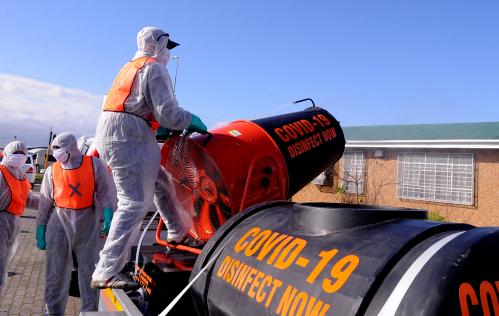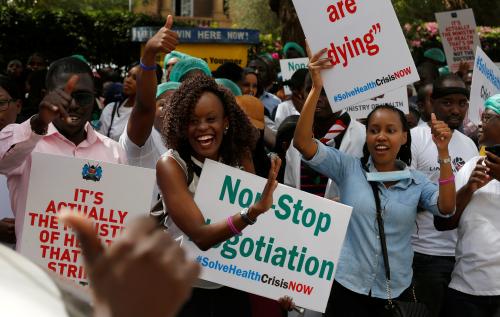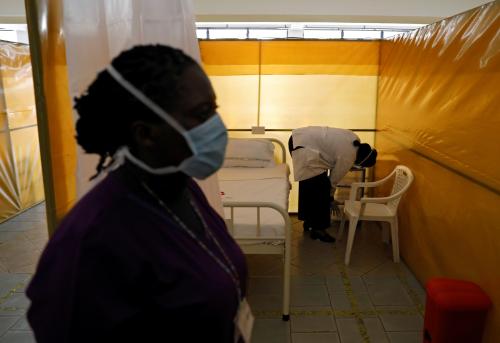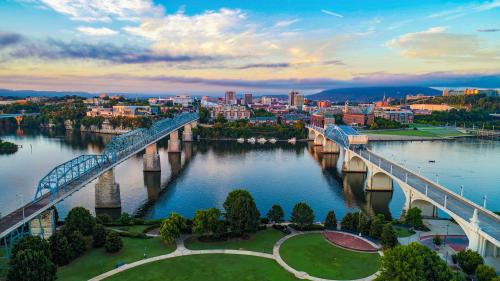Mozambique becomes the “world’s riskiest nation”
A chart published by Bloomberg on Wednesday shows that Mozambique has overtaken Venezuela as the world’s riskiest sovereign borrower, as its debt is now the most expensive in the world. Last Monday, October 24, the country told investors that its debt has become unsustainable and will need restructuring. During the presentation, the minister of economy and finance admitted that public debt will reach 130 percent of GDP this year. Debt restructuring is a prerequisite for its new International Monetary Fund program. The announcement was followed by an increase in the country’s 2023 eurobonds by 900 basis points to 24.5 percent. In the last seven years, Venezuela has almost consistently been the world’s riskiest borrower, a title it just lost to Mozambique. While Mozambique’s recent debt woes prompted the suspension of loans from the IMF, World Bank, and some donor countries, the fund announced on Wednesday that they could be resuming loans to Mozambique in early 2017, as long as the country makes efforts towards renegotiating loans with its creditors and allows for an independent debt audit to be conducted.
On a brighter note, this week, the country signed its first major solar power deal. Scatec Solar, a European solar energy providing company which owns solar plants in South Africa and Rwanda, signed an $80 million deal to sell electricity to Mozambique’s state owned energy company for 25 years. The company will build a 40MW plant which will produce energy for 175,000 households.
South Africa’s anti-government protests continue over state corruption
This week, several events shook the South African political sphere. First, the National Prosecuting Agency dropped its fraud charges against Finance Minister Pravin Gordhan due to outcry from South African civil society leaders who called the charges politically motivated. Then, on Wednesday, President Jacob Zuma withdrew his petition to delay the release of Public Protector Thuli Madonsela’s report on state capture in South Africa. The report was released soon after, and it revealed worrying signs that President Zuma’s relationship with the wealthy South African business family, the Guptas, may have influenced how he awarded public contracts and selected political appointees. For example, the report highlighted how Mr. Zuma’s son Duduzane, who holds a significant stake in a Gupta-owned mining company, received government contracts to finance the firm’s expansion. It also exposed how Deputy Finance Minister Mcebisi Jonas was offered the position of finance minister (along with a large sum of money) by one of the Gupta brothers in the presence of Mr. Zuma before the sacking of former Finance Minister Nhlanhla Nene. Public Protector Madonsela noted that her report was not definitive due to her lack of resources to conduct a full investigation, but stated that a commission of inquiry headed by a judge should be appointed within 30 days to follow up on the report’s findings.
Meanwhile, anti-government protests continued in Pretoria, with demonstrators calling for Zuma to step down in light of these latest findings in addition to the other corruption scandals which have plagued his presidency. The Nelson Mandela Foundation issued a strong statement as well this week arguing that President Zuma has failed in his commitment and ability as head of state, asserting, “What public discourse has described as ‘state capture’ by private and political interests is, we believe, a real threat to the Republic.”
Ugandan President Yoweri Museveni closes prestigious Makerere University “until further notice” amid faculty and student protests
On November 1, Ugandan President Yoweri Museveni ordered the temporary closure of one of the continent’s oldest and esteemed universities, Makerere University, in order to “guarantee safety of persons and property.” The closure, which is “until further notice,” is the latest event in the saga of strikes by the university’s faculty, which started on October 26 over the nonpayment of their eight-month salary incentive arrears—estimated at 28 billion Ugandan shillings ($8.3 million). The shutting of the university came after students joined their lecturers in the strike. On November 2, the university’s vice chancellor, Ddumba Ssentamu, supported Museveni’s decision, stating it was “long overdue.”
Once the students joined, the protests quickly turned violent. The Observer reports that at least 50 students have been arrested along with widespread vandalism and looting. The Independent has described police firing tear gas, water cannons, and even gunshots. Police spokesman Andrew Felix Kaweesi noted earlier this week that police will remain “heavily deployed” at the university until “the last person leaves,” and students were cleared from campus on Wednesday. On Thursday, Museveni called for university lecturers to be patient as the government finds money to pay them and to not “hold his government at ransom.”
The Brookings Institution is committed to quality, independence, and impact.
We are supported by a diverse array of funders. In line with our values and policies, each Brookings publication represents the sole views of its author(s).








Commentary
Africa in the news: Mozambique labeled world’s riskiest sovereign borrower, South Africa graft report released, and Makerere University closes under protests
November 4, 2016